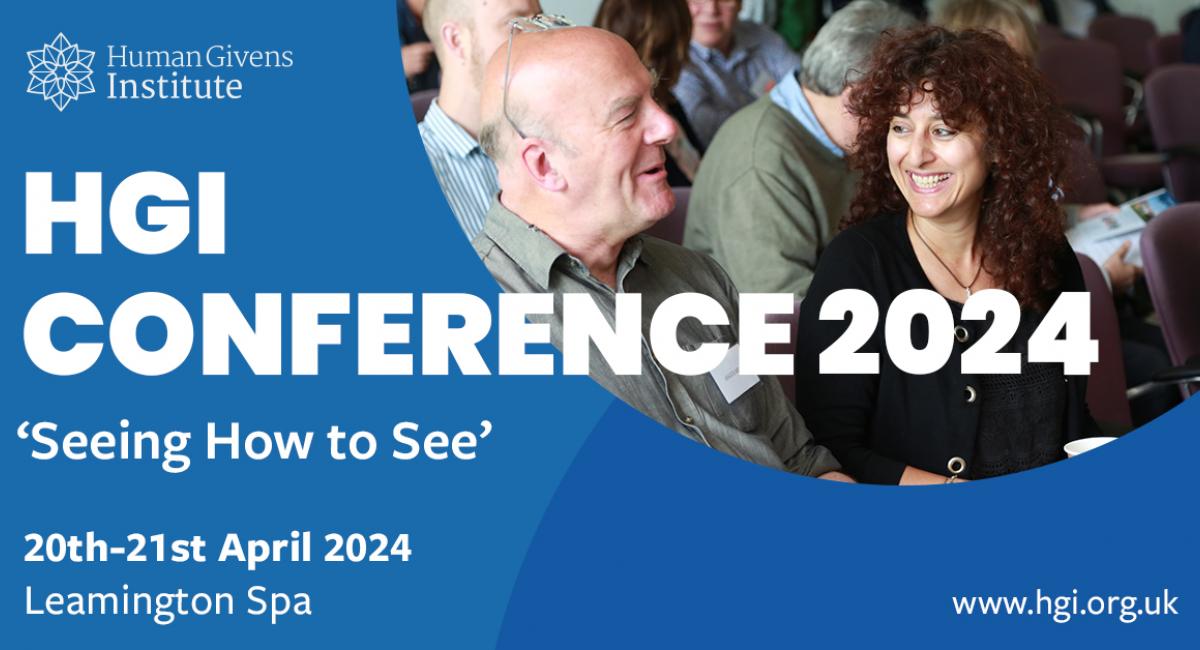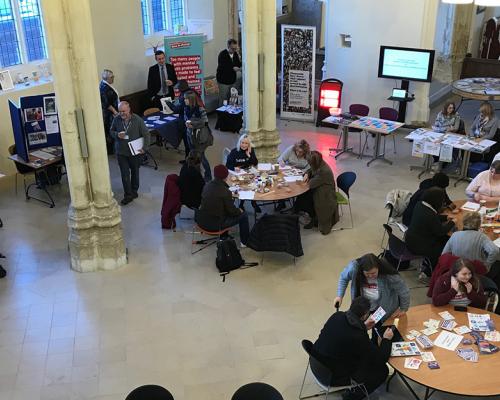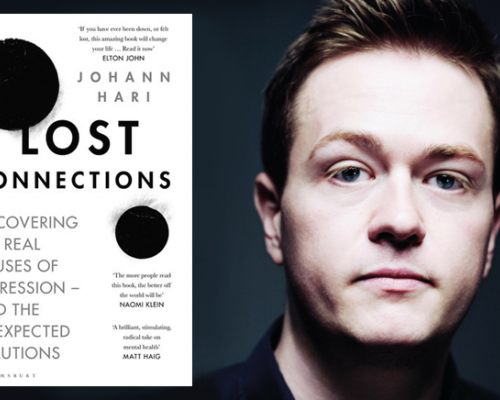2024 HGI Conference
'Seeing How to See'
Saturday 20th–Sunday 21st April 2024
at Woodland Grange, in Leamington Spa.
Limited Places – how to book >
Our popular in-person conferences are a great networking and educational opportunity.
This highly interactive CPD event will tackle some professionally and personally challenging questions, with the aim of building knowledge and understanding together as the weekend progresses, and giving you plenty of practical 'takeaways'.
How we see the world shapes the way that we experience it. Equally, the patterns and experiences that form us change the way we see the world. Those of our clients can determine what they focus on and what they notice, so we must first establish rapport with our clients by entering their models of reality. But this poses a challenge because our own patterns and experiences can prevent us from seeing them clearly. We may be impacted by, among other things:
- our professional view – how we view mental health can determine what problems we see and what solutions are available. Seeing the cause of mental illness as biological, social, environmental or due to past experiences will affect how we approach our clients and what we think they need
- our cultural view – the culture(s) we experience shape how we see and understand the world and this can affect the way we perceive the stories our clients tell us
- our personal view – we all have our own history and experiences that shape our perceptions.
|
PROGRAMME
Saturday 20th April 2024
|
|
| 9.00 |
Registration |
|
9.30
|
SEEING HOW TO SEEPatterns of perception in mental health Ezra Hewing and Gareth Hughes (Ezra won't be attending but has contributed to the talk) Is mental illness caused by biology, society, trauma or character and why are the people debating this question so angry with each other? This presentation will set the scene for the conference by exploring how shifts in culture and society have shaped the way we view reality and our relationship with nature, including the human brain and mental health. At a time when mental health is dominated by polarised viewpoints, understanding that what we see is moulded by how we see has never been more important, so that we can work with the clients in front of us and help them to meet their needs. |
|
10.00
|
Senses and metaphor as a bridge to new perceptions Ros Townsend This session will examine the role of senses and imagination in how we and our clients perceive and experience the world and how this can impact on both mental health and therapeutic practice. Understanding how every client uses their imagination in their own unique way can help us better connect with our clients’ model of reality and engage the powerful resource that is the imagination for recovery. Ros will explore creative ways to use a client’s unique model of reality and sensory perception to access the rich metaphors of landscape that guided imagery in a natural, outdoor setting gifts us, broadening perspective and creating an upward spiral of more effective ‘seeing’ in a client’s life. |
| 10.30 |
Discussion of the above two sessions |
| 11.00 |
Break for tea / coffee |
|
11.30
|
LOOKING AT HOW TO LOOKHow we look Carol Harper Building on the opening sessions, Carol will explore how we as therapists can get better at looking through our clients’ eyes to see their model of reality. This is an active session, which will provide space for self-reflection and exercises. |
|
12.00
|
Art and mental health, using the HG lens Sara Pendlebury This session will explore how art can aid the therapy offered by HG practitioners. Sara, who is a qualified modern art therapist and HG practitioner, will explain how using art with an understanding of RIGAAR, APET and the HG organising idea can help clients to create a new way of seeing the world, so that they can meet their needs in a healthy balance. The session will also explore how, using HG as a lens, we can explain how and why working with art can be helpful for people in distress and learn lessons that will be beneficial to our clients. |
| 12.30 |
Discussion of the above two sessions |
| 13.00 |
Networking Lunch – with a range of portable mini dishes |
|
14.00
|
SEEING DIFFERENTLY“Sikhing” to get needs met: seeing through a cultural lens Susan Lakhan Susan, a qualified optometrist, will use this session to draw parallels between the way we physically see the world and how we mentally perceive it. Through an exploration of her own Sikh upbringing, she will examine how cultural and religious beliefs shape our perception of the world. These can help people to get their needs met, from a strong sense of meaning and purpose centred around God to a profound sense of belonging through religious events and community engagement. But such beliefs can also create cultural blind spots and barriers against meeting other needs. The session will help us to think about the ways in which reflecting on some clients’ experiences through a different lens can help.
|
|
14.30
|
How marginalisation changes how you see and how you are seen Judith Desbonne James Baldwin said, ‘Not everything that Is faced can be changed but nothing can be changed until It is faced.’ Drawing on the work of the Creative Tuition Collective, Judith will explore how marginalised young people may see the world and how the world tends to see them. The session will also reflect upon the ways that a human givens approach can provide these young people with the tools to build healthy balanced lives and a new generation of individuals empowered to innovate and create change in their own way. |
| 15.00 |
Discussion of the above two sessions |
| 15.30 |
Break for tea / coffee |
|
16.00
|
GROUP ACTIVITY Using human givens as a lens to examine other ideas and approaches Gareth Hughes When we encounter new explanations for mental health or new ways of treating distress, how should we view them? How can we see what is useful for our clients, what is an old idea in new clothes and what is unhelpful? In this activity-based session we will explore using the human givens organising ideas to enhance our critical thinking to examine other ideas and approaches. |
|
16.45
|
Bringing learning together from the day and setting the scene for Sunday Gareth Hughes |
| 17.30 |
Discussion: possible name change This is an extra session for a general discussion about about the possibility of changing the name of human givens therapy. Everyone is welcome. |
| 18.30 |
Day ends |
| 20.00 |
Conference Dinner |
|
PROGRAMME
Sunday 21st April 2024
|
|
| 9.00 |
Registration |
| 9.25 |
Introduction |
|
9.30
|
Does categorisation limit or enhance perception?The limits of categorisation Denise Winn Human difference and human suffering are undeniable but do the categories and diagnostic labels we use to describe experience help or hinder us in our search for solutions? This session will discuss whether such diagnoses constrict our thinking, leading us to categorise and ignore what doesn’t fit – harming people in the process. Researchers are increasingly questioning whether diagnostic labels are accurate on a range of conditions from schizophrenia and personality disorders to autism spectrum disorders – ie that, while people’s experiences are genuine, the labels we use may be less evidence based and helpful than we’d like. |
|
10.00
|
Neurodiversity as a barrier to needs SJ Reilly How does self-perception and perceptions of the world change the ways that those who are neurodiverse can meet their needs? In this session, SJ will explore how those who are neurodiverse can sometimes see the world as a game that they never got the rules for, or they may understand some rules but find the costs to play along too high. She will consider the value of diagnosis and explore the practical steps we can take to enhance self-perception and creatively engage clients who are neurodiverse in RIGAAR and guided visualisation. |
| 10.30 |
Discussion of the above two sessions |
| 11.00 |
Break for tea / coffee |
|
11.30
|
Perceptions of clients and client perceptionsStigma, poverty and trauma Emma Scott In the same way astigmatism blurs or distorts vision, stigma around a group of people can also blur and distort our view of others. This session will provide a micro and macro look at how the HG organising idea and RIGAAR can greatly benefit individuals and communities who live with low or no income or face financial hardship. It will include stories and current research on the impact of stigma while identifying ways the HG organising idea can bring hope and empower communities to recognise their wealth of resources, innate and external; and how the stigma attached can prevent this being seen. While recognising the systematic prejudice often experienced, it will begin to show how to draw on the wisdom within these communities to help us in our work and to help our clients shape a fairer society. |
|
12.00
|
Gender identity and HG – "If you could see her through my eyes" Ingrid Steele Ingrid will explore how the HG framework can support people identifying as trans in their personal exploration of their needs, identity and wellbeing. Focusing away from political debates, Ingrid will draw on the experiences of clients, sharing insights from her therapeutic work, learning and ideas about how we as therapists can support the needs of people who do not see themselves, and are not seen by society, as the norm. How can we use the HG framework, our values and ethos to give people identifying as trans greater potential to meet their needs in balance? |
| 12.30 |
Discussion of the above two sessions |
| 13.00 |
Lunch |
|
14.00
|
Perceptions of clients and client perceptions (cont.)Perceptions of working with veterans Malcom Hanson The charity PTSD Resolution (www.ptsdresolution.org) offers therapy to veterans and/or members of their families, who are struggling to deal with trauma or difficult circumstances after an individual's military service is over. Its work is carried out only by HG therapists and has achieved impressive outcomes over its 14 years of existence. It would welcome having more HG therapists to share the load and help reach more people, particularly in view of the increasing demand from veterans in prison. Yet some HG therapists may be reluctant to offer their services because of misconceptions about the difficulty of the work. In this talk, Malcolm Hanson will give a realistic picture of what therapists can expect when working with this particular clientele, illustrate the variety of the work and the capabilities needed and explain the support that PTSD Resolution can offer therapists along the way. |
| 14.45 |
Discussion of the above session |
|
15.00
|
Viewing the mental health continuumREM and the mental health continuum Ezra Hewing (Ezra won’t be attending but has supplied a film to view) Psychiatric diagnoses risk reducing the experience of distress to a narrow construct or a list of symptoms which ignores the person. Viewing mental health as a continuum frees us from the limitations of psychiatric diagnoses, but does not explain why symptoms present as they do. This presentation will explore the mental health continuum through the lens of REM sleep, revealing a pattern which can help us to see the relationship between the experience of distress, sleep and symptoms. |
| 15.30 |
Break for tea / coffee |
|
16.00
|
Activity that draws together the previous three sessions Ros Townsend |
|
16.30
|
Completing the picture and looking to the future Gareth Hughes |
| 17.15 |
Thanks and close |
Places are Limited – book now to ensure yours
Explore our articles and interviews
Latest Tweets:
Tweets by humangivensLatest News:
HG practitioner participates in global congress
HG practitioner Felicity Jaffrey, who lives and works in Egypt, received the extraordinary honour of being invited to speak at Egypt’s hugely prestigious Global Congress on Population, Health and Human Development (PHDC24) in Cairo in October.
SCoPEd - latest update
The six SCoPEd partners have published their latest update on the important work currently underway with regards to the SCoPEd framework implementation, governance and impact assessment.
Date posted: 14/02/2024












